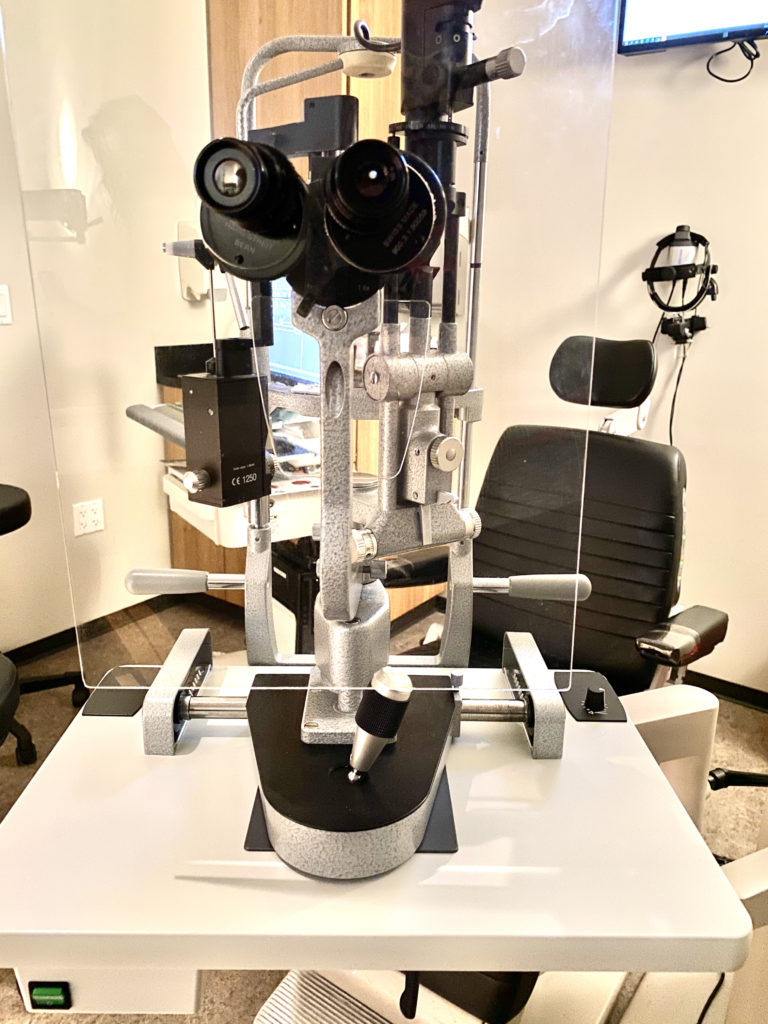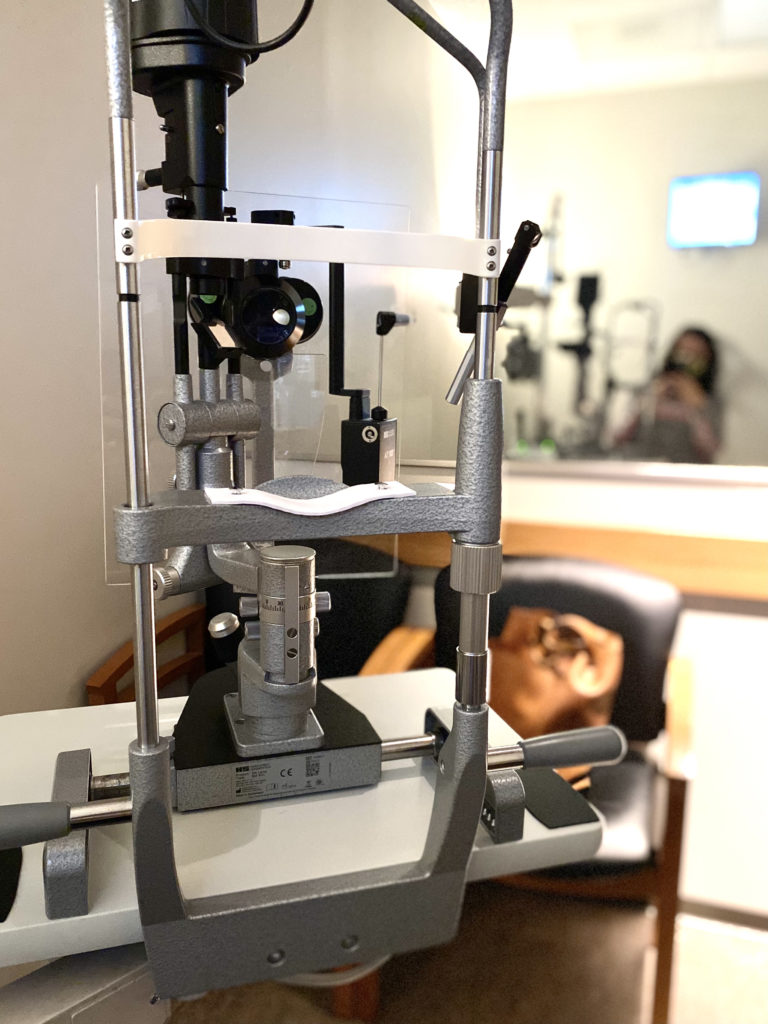
This post was sponsored by Regeneron as part of their Look to Your Future Campaign.
Ever wonder what a routine eye exam looks like when you have diabetes and what happens when you have your eyes dilated?
Getting a routine eye exam every year when you have diabetes can help prevent vision loss and blindness related to diabetic retinopathy. Keep reading to learn why these yearly eye exams are so important.
How does diabetes affect your eyes?
Prolonged elevated blood sugars can cause damage to blood vessels in your body. This damage is manifested more severely in areas of the body that have smaller blood vessels. Some of these areas include: nerve endings in your fingers and toes, kidneys, heart, and your eyes.
Thus, elevated blood sugars can lead to damaged blood vessels in your eyes. This is called Diabetic Retinopathy (DR). DR often does not have any signs or symptoms in its early stages. However, as the disease becomes more severe, the damaged blood vessels can leak fluid and cause vision loss over time.
Who has an increased diabetic retinopathy risk?
It is estimated that 30% of adults with diabetes will develop DR at some point in their lifetime. People with the following risk factors are more likely to develop DR:
- Living with diabetes for >10 years
- Are Hispanic, American Indian, or non-Hispanic African American
- Have a history of smoking
- Have high A1C levels
- Have high cholesterol
- Have high blood pressure
BUT, there is something you can do to help prevent vision loss related to DR!
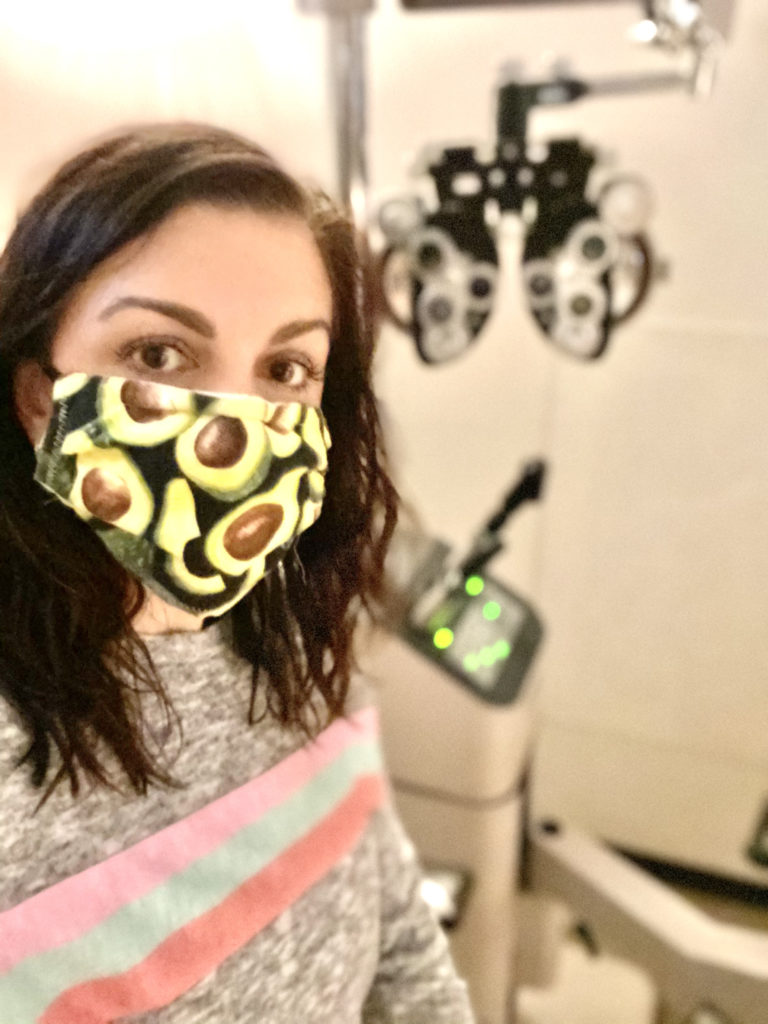
What is a diabetic eye exam?
A diabetic eye exam involves several tests including dilating your eyes. Your doctor will administer drops into your eyes to help widen your pupils, aka to dilate them. This allows your doctor to see to the back of your eye, or your retina, using a microscope. They can then evaluate the health of your retina.
Other tests included in a diabetic eye exam include:
- Visual acuity test
- Fundus photography
- Applanation tonometry
- Optical Coherence Tomography
You can read more about each of these individual tests and what to expect on LooktoYourFuture.com.
Who performs diabetic eye exams?
A diabetic eye exam is done by either an optometrist (Doctor of Optometry) or an ophthalmologist (a medical doctor who specializes in eye care).
- Optometrists provide eye exams, vision tests, corrective lenses, can diagnose eye diseases, and may work with you to develop lifestyle plans that support eye health.
- An ophthalmologist can perform eye exams and vision tests, diagnose, and treat eye diseases, and perform surgery.
- A retina specialist is an ophthalmologist who has years of specialized training in treating diseases of the retina as well as a wide range of eye conditions. They are also the only doctor who can prescribe treatment for potential retinal diseases.
How often should you have an eye exam?
Once diagnosed with diabetes, your routine eye exam should happen every year. If your doctor notices damage to your retina, diagnoses you with DR, or observes other diabetes related eye damages, you will likely be advised to come more frequently or referred to a retina specialist.
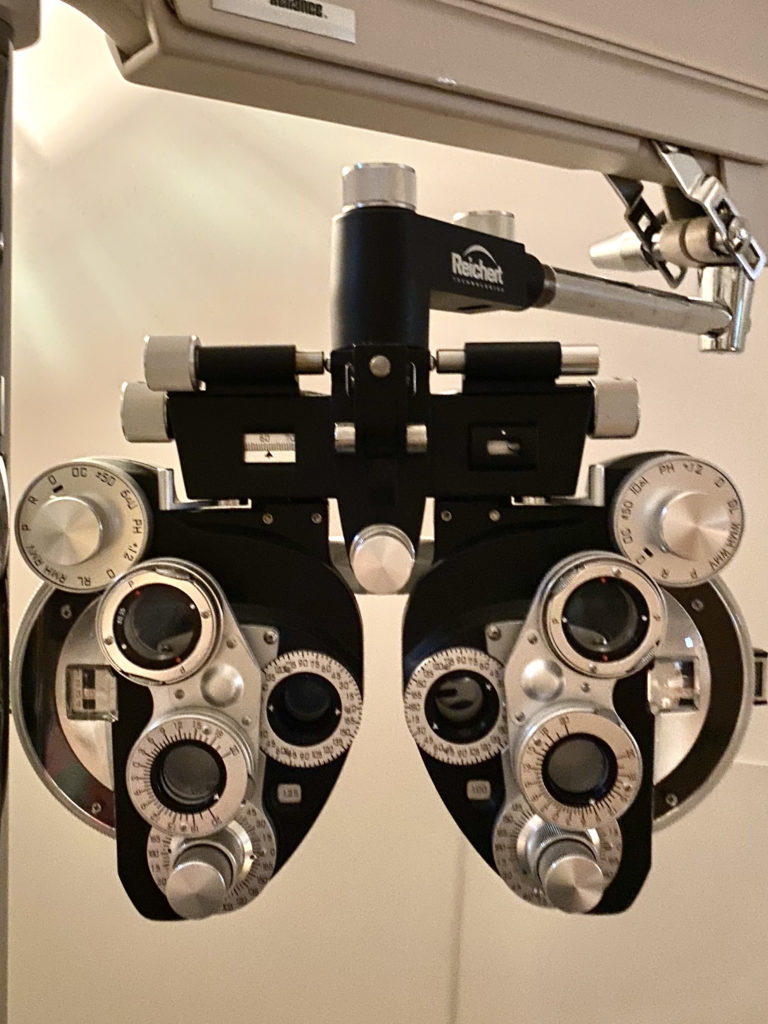
Common questions about what happens during a dilated eye exam
Here’s a few quick and simple answers to the most common questions about routine eye exams for those living with diabetes…
Basics of a retinal eye exam?
Page 3 of this handout explains in very easy to understand terms what happens during the retinal eye exam.
Why do optometrists dilate your eyes?
Optometrists need to dilate your pupils to see into your eye and view your retina which sits on the back of your eyeball. Dilation helps evaluate the health of the blood vessels on your retinas. If these blood vessels are damaged you may be at risk of losing your vision if left untreated.
What are eye dilation drops?
Dilation drops are a solution that your doctor will drop into your eyes to help your pupils dilate (become larger).
Can you drive with dilated eyes?
Most eye care professionals recommend having someone else drive you to and from your appointment to be safe since it is difficult to see small details when your eyes are dilated. For example, reading most books or magazines will not be possible for a few hours.
How long do eyes stay dilated?
Your eyes should return to your usual level of sight within a few hours.
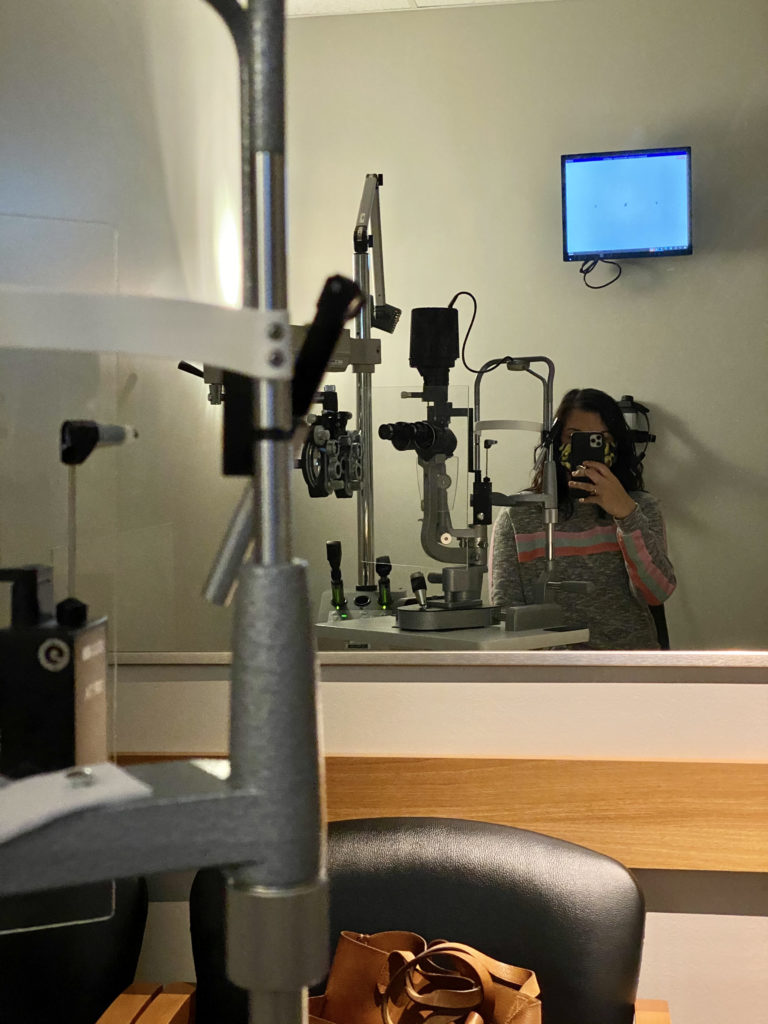
My experience with diabetes eye care over the last 30 years
I’ve been living with diabetes for almost 30 years (in fact it’ll be 30 years in August 2021!), and it’s safe to say I’ve had quite a few diabetic eye exams in my time. Starting around age 10, I went for routine eye exams each year and still do to this day.
I had a short period in my 20s where my doctor wanted me to come in every 6 months to have my eyes checked, but eventually deemed my eyes well enough to go back to yearly visits. You can read more about that story in this post.
While going to the eye doctor and having my eyes dilated each year isn’t something I particularly enjoy, the peace of mind it gives me knowing my eyes have been checked by a professional and I’m doing everything I can to keep my vision intact and healthy is well worth it!
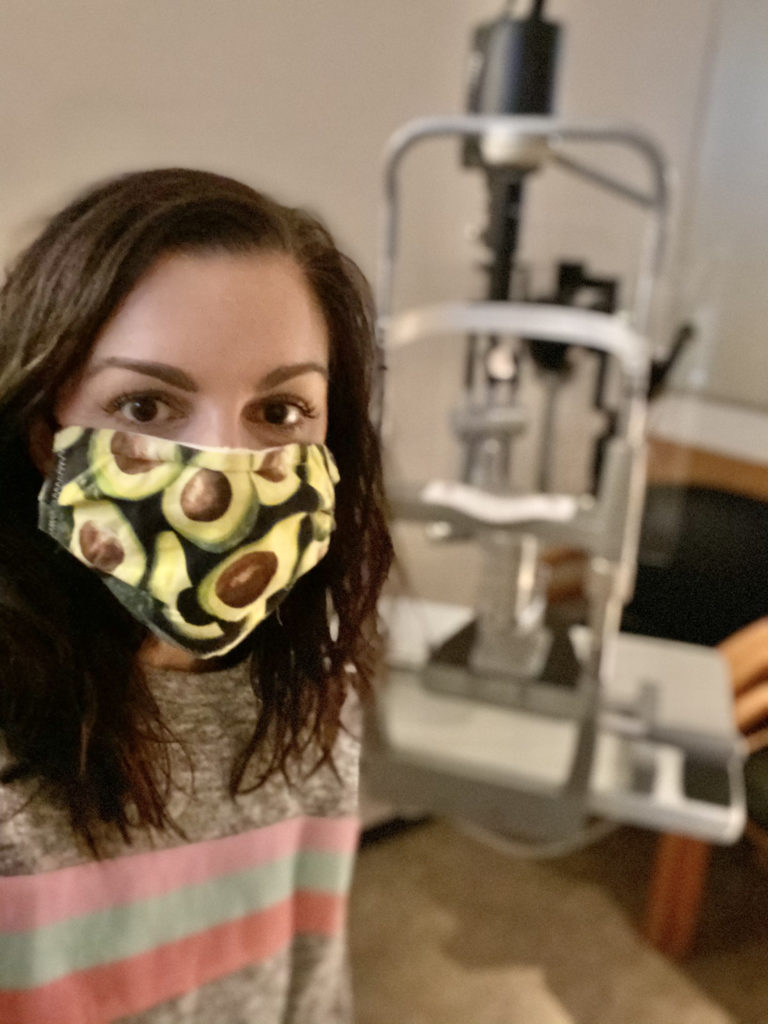
What’s best for your diabetes and eyesight
The best things you can do for your eye health when you have diabetes is to go to the eye doctor every year and do your best to manage your blood sugars.
Tips for living with diabetes and eye care
- Go to the eye doctor each year
- Manage your blood sugars
- Manage blood pressure levels
- Manage your cholesterol levels
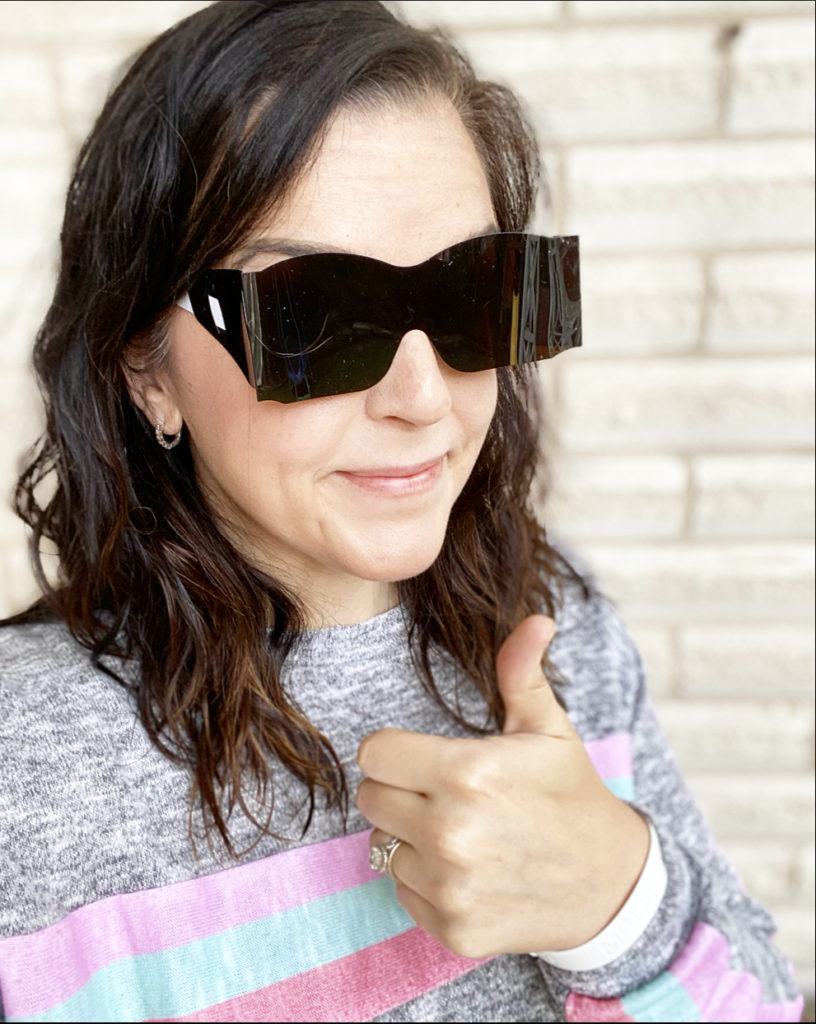
How can you tell if diabetes is affecting your eyes?
Unfortunately, DR doesn’t always have symptoms in the early stages. That’s why those routine eye exams are so important.
What are the four stages of diabetic retinopathy?
The four stages of DR range from minor non-proliferative DR which often requires no treatment but rather just more frequent monitoring… to proliferative retinopathy where new blood vessels grow in the eye causing potential blindness and often warranting surgery. This article covers the 4 stages in more detail.
Can diabetic retinopathy be reversed?
Diabetic retinopathy can be slowed and even reversed to a certain extent if managed with routine monitoring visits, early detection and timely treatment.
How can we prevent eye diseases while living with diabetes?
By now, surely you know what I’m going to say here… get your routine eye exam every year with your eye care professional! And make sure to check out LooktoYourFuture.com for more information.
